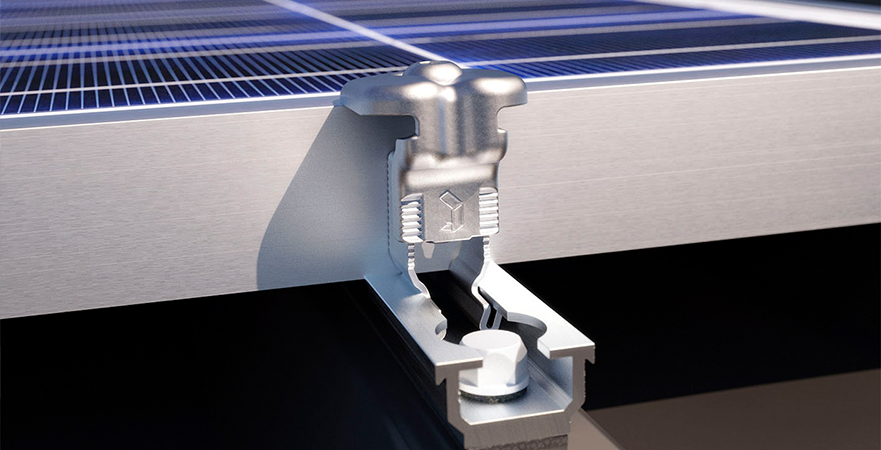Solar Mounting Systems, The Backbone of Solar Power
Solar mounting systems are a structural element that secures solar panels to the rooftop or ground, keeping up with optimal capture of sunlight and expected system lifetime. The normal process of installing a facility, such as the one used in solar power systems, would be impossible without an exceptional mounting system.
Solar Mounting Systems Types
The two major types of Solar mounting systems are:配
Roof-Mounted Systems:
Tilt-Mounted Systems: These systems are built, using adjustable mounting frames to mount the solar panels at an angle that is best for capturing sunlight.
Ballasted Roof-Mount Systems : Ballasting roof-mount systems also secure panels to the roof without penetrating its membrane, yet utilize weights in place of mechanical fasteners.
Rack-Mounted Systems: These systems utilize a rack system to mount the solar panels on the roof; this approach typically requires penetrating the roof.
Ground-Mounted Systems:
Fixed-tilt ground-mount systems: These are structures that will hold the solar panels at a fixed angle
Tracking Ground-Mount Systems: This type of system moves to follow the sun as its position changes throughout the day, ensuring it produces energy at maximum levels.
Image of a tracking ground mounted solar panel system
There are several factors to consider when selecting a mounting system:
Roof Type and Condition: The type and quality of your roof will determine the mounting system.
Local Building Codes and Regulations – These are some of the few most significant datasets(gulp for air), you must not trade off compliance with local building codes.
Solar Panel Orientation and Tilt Angle: This can differ based on your location as well, climate.
Wind/ Snow Load:** Mounting system must be designed to local wind and snow load.
Image:** The solar system looks can be one factor specifically with regard to household setup.
They form the backbone of a solar mounting system.
Solar Mounting System Essentials
Mounting Frames – These are the support of Solar Panels.
Clamps & Connectors: Secure panels to mounting frames + electrically connect them
Ballast Weights (for ballasted systems):these weights offer stability and stop the system from being blown away by powerful winds.
But after years of grievances — losing sleep over the risk to their density bonuses, spike in construction cause noise or just wanting a bit of respect for plaza life bedtime bathroom schedules and what not App Boy has written granite countertops i love lady gaga essays are all on mute. ” Ground Mounts (for ground-mounted systems): These provide an archaeus fragmentation that enmasses the solar panels.
Installation Considerations
Professional Installation — It is important to have a trusted solar installer for installing your system and also making sure that it meets all the safety standards.
If you have a tile roof, they should also take care to not damage the roof tiles during any necessary penetrations.
New Electrical Wiring: Installing new electrical wiring should be done professionally to meet the strict codes and standards for residential installations.
Permits and Inspections-Get all necessary permits and inspections to comply with the local regulations.
Taking the time to consider these things and picking out a mounting system can go miles toward getting your solar power set-up lasting for years.
